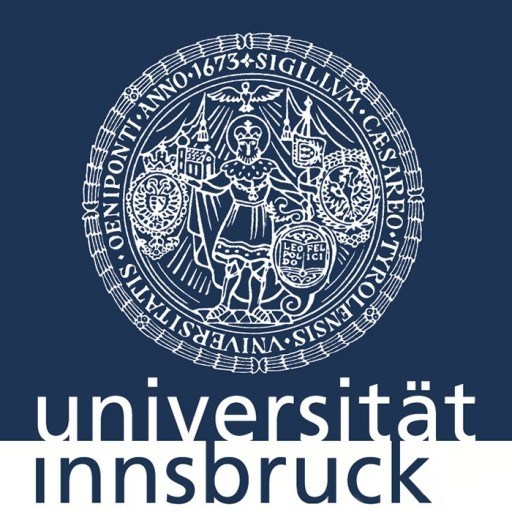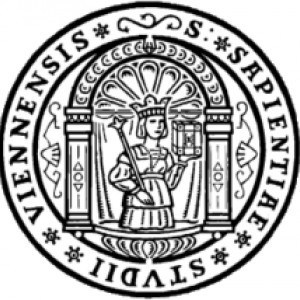Photos of university / #uniinnsbruck
The Bachelor’s degree program in Chemistry at the University of Innsbruck offers an in-depth exploration of the fundamental principles and practical applications of chemistry, preparing students for diverse careers within science and industry. Over the course of the program, students acquire a solid foundation in inorganic, organic, physical, and analytical chemistry, complemented by modules in mathematics, physics, and computational methods to support their understanding of chemical phenomena. The curriculum emphasizes both theoretical knowledge and laboratory skills, ensuring that graduates are capable of designing experiments, analyzing data, and applying modern chemical techniques effectively. Students will engage in hands-on laboratory practices, fostering proficiency with state-of-the-art instrumentation and protocols used in research and development settings. The program also promotes the development of critical thinking, problem-solving, and scientific communication skills, which are essential in any scientific career. Throughout their studies, students have opportunities to participate in research projects, internships, and collaborations with industry partners, gaining valuable practical experience and insights into real-world applications of chemistry. The program is designed to be flexible, allowing students to tailor their coursework towards specific interests such as materials science, biochemistry, environmental chemistry, or pharmaceutical chemistry. Faculty members at the University of Innsbruck are engaged in innovative research, providing students with inspiration and mentorship from leading scientists in the field. The Bachelor’s in Chemistry prepares graduates for further education at the master’s level or entry into the professional workforce in sectors such as pharmaceuticals, environmental protection, materials development, and analytical services. The university encourages an international outlook, with opportunities for mobility and exchange programs, broadening students' cultural and scientific perspectives. Overall, this program aims to produce well-qualified, competent chemists equipped with the knowledge, skills, and motivation to contribute meaningfully to scientific advancements and societal development.
Compulsory Modules
- Scientific Basics/Core Skills of the Thesis Topic
- Department Seminar
- Lecture Series Austrian Chemical Society
- Center for Molecular Biosciences Innsbruck
- Materials and Nano-Sciences
- High Performance Computing
- Generic Skills
- Doctoral Thesis Defense
Dissertation
The dissertation is a piece of scientific work on the highest level which serves to prove the student's ability to cope with scientific questions in an independent way.
The dissertation topic must be chosen from the field of chemistry or be closely related to chemistry.
The student has to nominate a team of supervisors, comprised of at least two supervisors (dissertation committee). One of the supervisors is named as responsible main supervisor (holder of a “Venia docendi”, a university teaching authorization). With the exception of the main supervisor, supervisors can also come from subject-related fields. In exceptional cases only one supervisor can be nominated.
Prior to beginning the work, the student has to communicate the dissertation topic and the names of the supervisors to the Director of Studies in writing. Topic and supervisors are considered as accepted, if the Director of Studies does not veto them by means of a decree within one month after the receipt of the proposal.
The dissertation may be submitted as thematically and/or methodically related articles. The quality criteria specified in the curriculum apply.
Requirements
- Completed a master's degree in a relevant related field.
- Proof of German language ability (level B2)
- Curriculum vitae,
- As well as (originals or officially certified copies):
- Notice (“Bescheid”) confirming awarding of bachelor’s degree,
- Diploma certificate,
- Diploma Supplement
- transcript (list of examinations completed).
- Examination Records
- Recognition of exams
- Declaration of Academic Honesty
- Submission of the Dissertation
- Application for the Dissertation's Defense
The financing of the Chemistry degree program at the University of Innsbruck is primarily based on tuition fees, which are structured according to the regulations for international and domestic students. For students from the European Union, tuition fees are generally waived or kept at a minimal level, in accordance with Austrian education policies promoting accessible higher education. Non-EU students are typically required to pay standard tuition fees, which are set annually and may vary depending on specific regulations.
In addition to tuition fees, students have access to various funding sources including government grants, scholarships, and student loans. The Austrian government offers numerous scholarships aimed at supporting both domestic and international students during their studies. These scholarships are often merit-based or need-based and are awarded through the university or external agencies. The University of Innsbruck itself provides several financial aid options, including merit scholarships, research grants for thesis projects, and departmental funding opportunities for outstanding students.
Furthermore, students often seek external scholarships from Austrian and international organizations, which can include foundations, cultural organizations, and industry sponsors related to the field of chemistry. The university also encourages students to participate in research projects and internships, some of which are funded by industry collaborations or European Union programs such as Erasmus+. Such opportunities can offer stipends or financial support for students during their studies.
Students enrolled in the program may also have the possibility to work part-time and supplement their income, provided that their working hours comply with the legal regulations for international students. The university's career service provides guidance on job opportunities and internships in the chemical industry and research sectors, which not only assist students financially but also enhance their professional experience.
In summary, the financing of the Chemistry program at the University of Innsbruck is a combination of tuition fees, scholarships, grants, part-time work opportunities, and external funding sources. The university offers targeted support and guidance to help students manage the costs associated with their studies, ensuring that financial barriers do not impede access to quality higher education in chemistry.
The Chemistry degree programme at the University of Innsbruck offers students a comprehensive education in the fundamental principles and experimental techniques of chemistry, preparing graduates for diverse careers in research, industry, education, and public service. The programme is designed to provide a solid grounding in inorganic, organic, physical, and analytical chemistry, as well as opportunities for specialization in areas such as materials chemistry, biochemistry, and environmental chemistry. Students will engage in laboratory work from early stages, developing practical skills and scientific competencies that are essential for research and development roles. The curriculum includes coursework, laboratory exercises, and projects that promote critical thinking, problem-solving, and innovative approaches to scientific questions. The university emphasizes an international and collaborative learning environment, often involving research projects and internships that allow students to gain real-world experience. The programme is suitable for students aiming to pursue postgraduate studies, as it offers a strong foundation for Master's and PhD programmes in chemistry or related disciplines. Graduates from the programme are expected to be proficient in scientific communication, data analysis, and safety practices within a laboratory setting. The University of Innsbruck also provides modern laboratory facilities, access to scientific literature, and opportunities to participate in research activities led by experienced faculty members. Furthermore, the programme encourages student participation in conferences, seminars, and exchange programmes, fostering a global perspective on chemical sciences. Upon completion of the bachelor's degree, students can continue their education through master's programmes at the university or explore employment opportunities in sectors such as pharmaceuticals, environmental consulting, manufacturing, and academic research. The university’s focus on interdisciplinary learning and research collaboration ensures that students are well-equipped to meet the challenges of modern chemistry and contribute meaningfully to scientific advancement.

